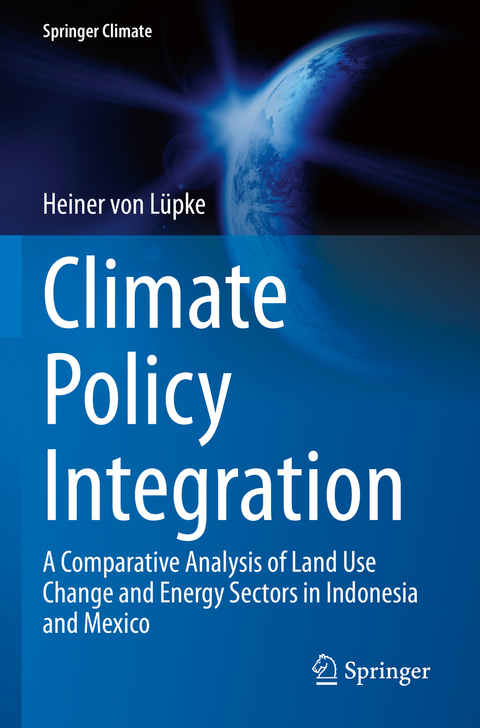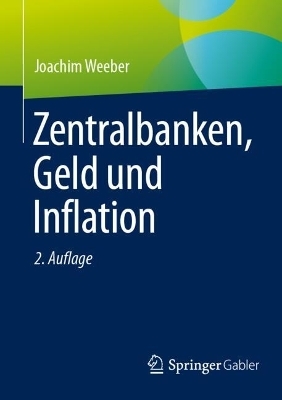
Climate Policy Integration
Springer International Publishing (Verlag)
978-3-031-18929-6 (ISBN)
This book analyzes climate policy integration processes by investigating cause-effect relations in cases of integrating climate policy in energy and land-use sectors of Indonesia and Mexico, taking a novel comparative case study approach. The book identifies root causes for integration outside of the public administration, discussing decisive factors in the political economy of the energy and land-use sectors. Showing how policy windows may open for the successful integration of climate policies nevertheless, the book addresses the need to identify and properly use these windows to establish the administrative and institutional arrangements for effective climate policy implementation.
This book offers two-fold insights for overcoming the challenges posed by climate policy integration: Firstly, it contributes to theory-building by amending theories of the policy process and by taking a wider perspective on the role of integration in the context of transformational change processes in emerging economies. Secondly, it sets forth a set of research-based practical policy recommendations on how to foster climate policy integration in the political decision-making processes as well as the public administration structures. Therefore, this book will appeal to scholars and researchers of public policy, public administration, political science, and environmental sciences, as well as policy-makers and practitioners interested in a better understanding of climate policy integration in energy and land-use sectors.Heiner von Lüpke is a senior researcher at the Climate Policy Department of the German Institute for Economic Research (DIW), Berlin, Germany. Prior, he studied international forestry and management, as well as Latin American studies at the Technical University Dresden, Germany, and completed his PhD in political science at the Technical University Darmstadt, Germany. His previous work experience includes 3 years at the Food and Agriculture Organization of the United Nations (UN-FAO), almost 8 years at the German Agency for International Cooperation (GIZ) as a climate policy advisor to the Indonesian government, and 3 years advising the German government on international climate policy. His research focuses on the cross-sectoral aspects of climate policy-making, climate governance, as well as international climate finance and cooperation.
Part I. Climate Policy Integration: Widely Called for, but Contested in Implementation.- Chapter 1. The Case for Climate Policy Integration.- Chapter 2. Concepts and Theories for CPI.- Chapter 3. Research Design, Methods and Motivations for Country and Sector Selection.- Part II. Pathways for Climate Policy Integration.- Chapter 4. Introduction to Countries and Sectors: Energy and LUCF Sectors of Mexico and Indonesia.- Chapter 5. Four Cases of Climate Policy Integration: Energy and LUCF Sectors of Mexico and Indonesia.- Part III. The Bigger Picture: Climate Policy Integration Approaches in the Context of Transformational Change.- Chapter 6. Towards a CPI Typology.- Chapter 7. Building Theories: CPI in the Context of Transformational Change.- Chapter 8. Policy Recommendations and Outlook.
| Erscheinungsdatum | 01.12.2023 |
|---|---|
| Reihe/Serie | Springer Climate |
| Zusatzinfo | XX, 254 p. 1 illus. |
| Verlagsort | Cham |
| Sprache | englisch |
| Maße | 155 x 235 mm |
| Gewicht | 427 g |
| Themenwelt | Sozialwissenschaften ► Politik / Verwaltung ► Staat / Verwaltung |
| Schlagworte | Agriculture • climate compatible development • Climate Governance • Climate policy indicators • deforestation • emerging economies • Energy Policy • Energy Sector • forestry • Fossil fuel economy • Indonesia • Land-use policy • Mexico • natural resources • Policy coordination • political agenda • REDD+ • renewable energy • rural development • transformational change |
| ISBN-10 | 3-031-18929-9 / 3031189299 |
| ISBN-13 | 978-3-031-18929-6 / 9783031189296 |
| Zustand | Neuware |
| Haben Sie eine Frage zum Produkt? |
aus dem Bereich


